This content originally appeared on Radio Free Europe/Radio Liberty and was authored by Radio Free Europe/Radio Liberty.
This post was originally published on Radio Free.
This content originally appeared on Radio Free Europe/Radio Liberty and was authored by Radio Free Europe/Radio Liberty.
This post was originally published on Radio Free.
Macron’s plan has backfired. But there can be no sustainable solution without cooperation of all parties, writes a former Australian diplomat in New Caledonia.
ANALYSIS: By Denise Fisher
Monday night saw demonstrations by independence supporters in New Caledonia erupt into serious violence for the first time since the 1980s civil disturbances.
The mainly indigenous demonstrators were opposing President Emmanuel Macron’s imposition of constitutional change to widen voter eligibility unless discussions about the future begin soon.
The protests occurred the day before France’s National Assembly was to vote on the issue, and just after Macron had proposed new talks in Paris.
On Monday, May 13, in Noumea, as France’s National Assembly debated the constitutional change in Paris, their local counterparts in the New Caledonian Congress were debating a resolution calling for withdrawal of the legislation.
The debate was bitter, after months of deepening division between independence and loyalist parties and focusing as it did on one of the most sensitive issues to each side, that of voter eligibility. The resolution was passed, as independence parties secured the support of a small minority party to outnumber the loyalists.
Macron, in an eleventh hour bid to prompt all parties to participate in new discussions about the future, proposed on May 13 to hold talks in Paris, but only after the Assembly vote of May 14 (albeit before the next step in the constitutional amendment process, a meeting of both houses).
Independence party leaders had called on their supporters to demonstrate against the constitutional reform, to coincide with the National Assembly’s consideration of the issue. The evening of May 13 was marked by violence on a scale not seen in decades.
Burning of buildings, roadblocks
It included the burning of buildings and businesses, roadblocks preventing movement in and out of the capital, and the closure of airports and ports in some of the islands. Police were targeted with gunfire and stoning, resulting in 35 injured police.
As of yesterday, Tuesday May 14, people were being asked to stay at home, with a curfew imposed. France, which already had 700 police on the job in New Caledonia, has sent reinforcements to maintain order.
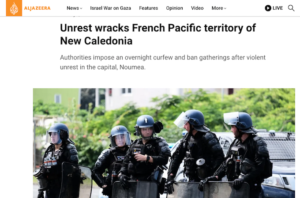
The violence immediately brought to the minds of leaders the bloodshed of the 1980s, termed “les événements”.
The French High Commissioner, or governor, suggested things were moving “towards an abyss” and cancelled some incoming flights to prevent complications from tourists being unable to access Noumea, while noting that the airport and main wharf remain open. He urged independence leaders to use their influence on the young to stop the violence.
The Mayor of Noumea, Sonia Lagarde, described the situation as “extremely well organised guerrilla warfare” involving “well-trained young people” and suggested “a sort of civil war” was approaching.
On the face of it, to an outsider, Macron’s plan to broaden voter eligibility to those with 10 years’ residence prior to any local election, unless discussions about the future begin, would seem reasonable.
He sees the three independence votes held from 2018–21 as legal, notwithstanding the largely indigenous boycott of the third. (Each referendum saw a vote to stay with France, although support was narrow, declining from 56.7% to 53.3% in the first two votes, but ballooning to 96.5% in the third vote boycotted by independence supporters.)
‘Radical’ for white Caledonians, ‘unconscionable’ for Kanaks
For New Caledonians, Macron’s positioning is radical. Loyalists see it as a vindication of their position.
But for independence parties, France’s stance has been unconscionable. Independence leaders reject the result of the boycotted referendum and want another self-determination vote soon.
Some have refused to participate in discussions organised by France, although one of the most recalcitrant elements suggested some discussion would be possible just days before the violent demonstrations.
But they have all strongly opposed Macron’s imposing constitutional change to widen voter eligibility unilaterally from Paris. They were affronted by his appointment of a prominent loyalist MP as the rapporteur responsible for shepherding the issue through the Assembly.
They have instead been calling for a special mission led by an impartial figure to bring about dialogue.
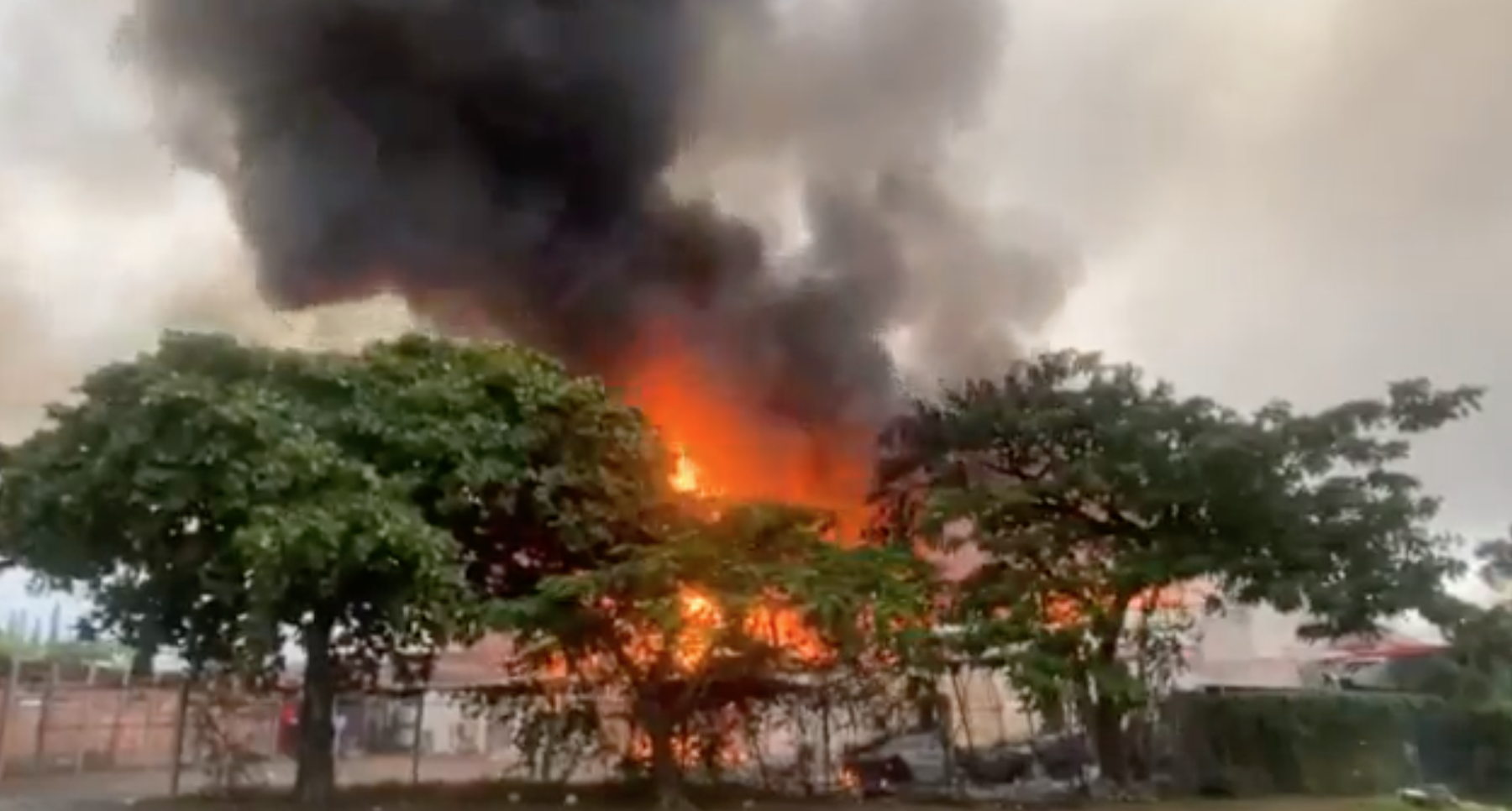
More importantly, they see the highly sensitive voter eligibility issue as a central negotiating chip in discussions about the future. Confining voter eligibility only to those with longstanding residence on a fixed basis — not by a number of years prior to any local election as Macron is proposing — was fundamental to securing independence party acceptance of peace agreements over 30 years, after France had operated a policy of bringing in French nationals from elsewhere to outweigh local independence supporters who are primarily indigenous.
Differences have deepened
With the inconclusive end of these agreements, differences have only deepened.
Loyalist leaders have accused independence leaders of planning the violence. Whether it was planned or whether demonstrations degenerated, either way it is clear that emotions are running high among independence supporters, who feel their position is not being respected.
No sustainable solution for the governance of New Caledonia is possible without the cooperation of all parties.
It seems that, regardless of Macron’s evident intention of spurring parties to come to the discussion table, his plan has backfired. Discussions are unlikely to resume soon.
Denise Fisher is a visiting fellow at Australian National University’s Centre for European Studies. She was an Australian diplomat for 30 years, serving in Australian diplomatic missions as a political and economic policy analyst in many Australian missions in Asia, Europe and Africa, including as Australian Consul-General in Nouméa, New Caledonia (2001-2004). She is the author of France in the South Pacific: Power and Politics (2013). This article was first published by the Lowy Institute’s The Interpreter and is republished by Asia Pacific Report with permission.
This post was originally published on Asia Pacific Report.
By Patrick Decloitre, RNZ Pacific correspondent French Pacific desk
A group belonging to New Caledonia’s pro-independence movement, UNI (Union Nationale pour l’Indépendance), has released a communiqué saying they were “moved by and deplored the exactions and violence taking place“.
UNI member of New Caledonia’s Northern provincial assembly Patricia Goa said the violent unrest “affects the whole of our population”.
She said it was “necessary to preserve all that we have built together for over 30 years” and that the priority was “to preserve peace, social cohesion”.
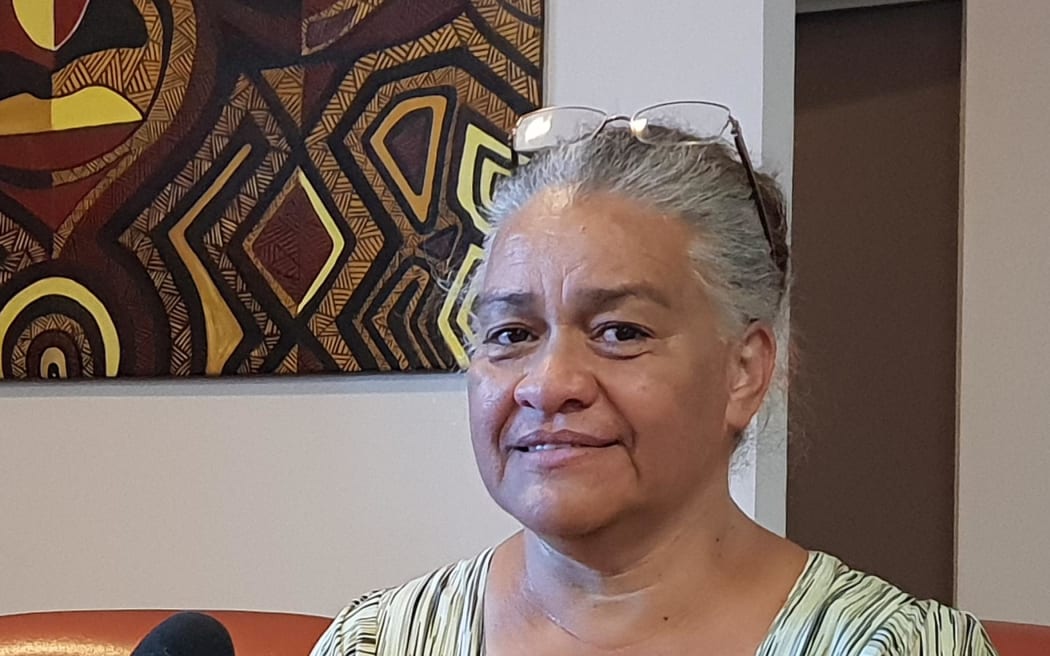
New Caledonia’s territorial President, pro-independence leader Louis Mapou, in a news release from his “collegial” government, appealed for “calm, peace, stability and reason”.
He said they “must remain our goals” in the face of “those events that can only show the persistence of profound fractures and misunderstandings”.
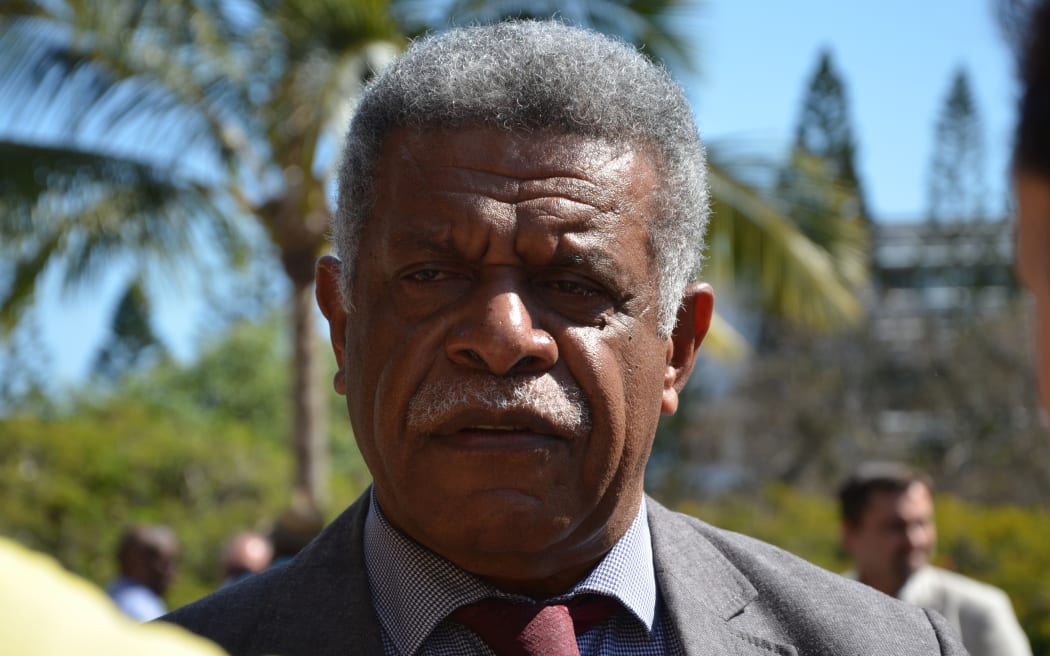
He called on all components of New Caledonia’s society to “use every way and means to bring back reason and calm”.
“Every explanation for these frustrations — anger cannot justify harming or destroying public property, production tools, all of which this country has taken decades to build,” he said, strongly condemning such actions.
Referring to current debates in the Paris National Assembly on changing the French Constitution — to allow more voters at New Caledonia’s local provincial elections — Mapou also appealed to French President Emmanuel Macron, to “bear in mind” that at all times, the priority must remain for a comprehensive agreement to be struck between all political leaders of New Caledonia, to pave the way for the archipelago’s long-term political future.
This accord has not taken place and Macron at the weekend invited all of New Caledonia’s leaders to restart discussions in Paris.
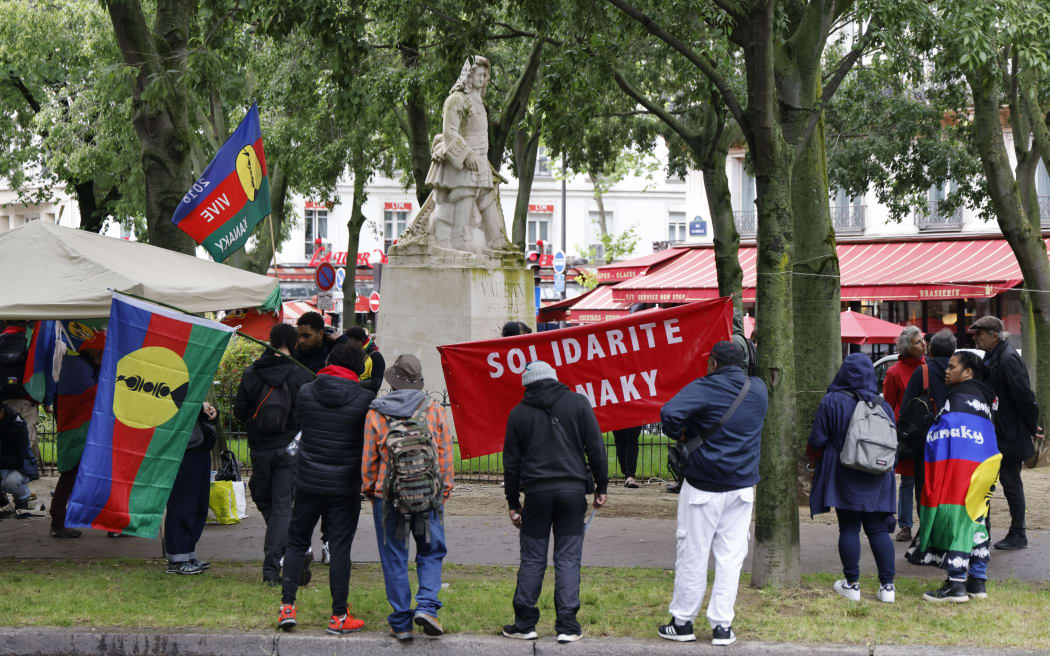
Back in Paris, debates resumed last night in National Assembly, but the vote on a French government-proposed Constitutional change to modify the conditions of eligibility ended with a decisive yes 351-153 in spite of the strong opposition.
Left-wing MPs are supporting New Caledonia’s pro-independence movement in their struggle against a text they believe would seriously affect their political representation.
The constitutional change is regarded as the main cause of New Caledonia’s current unrest.
Meanwhile, New Zealand Foreign Minister Winston Peters, is this week heading a political delegation in several Pacific island countries and territories, including Solomon Islands, Papua New Guinea, Vanuatu, and Tuvalu.
However, the New Caledonian leg of the tour was officially cancelled and will be rescheduled to another date.
As part of the official travel programme, the delegation was to “meet with government, political and cultural leaders, visit New Zealand-supported development initiatives and participate in community activities”.
This article is republished under a community partnership agreement with RNZ.
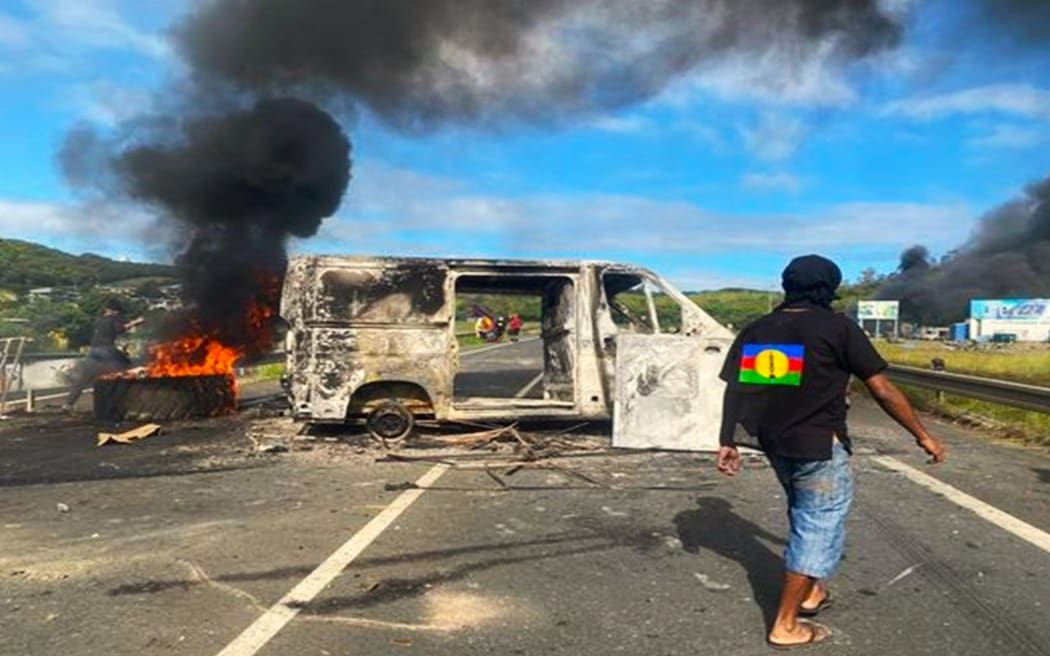
This post was originally published on Asia Pacific Report.
As student protests around the world call for their educational institutions to divest from companies with ties to Israel, we speak to the Reverend Dr. Serene Jones, the president of Union Theological Seminary, an ecumenical seminary affiliated with Columbia University that is one of the first schools to begin divesting from companies that “profit from war in Palestine/Israel.
This post was originally published on Latest – Truthout.
The current wave of student-led Palestine solidarity protests has reached an inflection point, as organizers at some remaining encampments say they are bracing for police raids. In Chicago, the DePaul Divestment Coalition, which organized an encampment on the DePaul University campus, has announced that administrators have declared a “stalemate,” effectively ending negotiations with student…
This post was originally published on Latest – Truthout.
New Caledonians lined up in long queues outside shopping centres to buy supplies in the capital Nouméa today amid political unrest in the French territory
Demonstrations, marches and clashes with security forces erupted yesterday and French High Commissioner Louis Le Franc told the public broadcaster he had called for reinforcements to maintain law and order.
The unrest comes amid proposed constitutional changes, which could strengthen voting rights for anti-independence supporters in New Caledonia.
A Nouméa resident, who wished to remain anonymous, told RNZ Pacific people had started “panic buying” in scenes reminiscent of the covid-19 pandemic.
“A lot of fire, violence . . . but it’s better. I stay safe at home. There are a lot of police and army. I want the government to put the action for the peace [sic].”
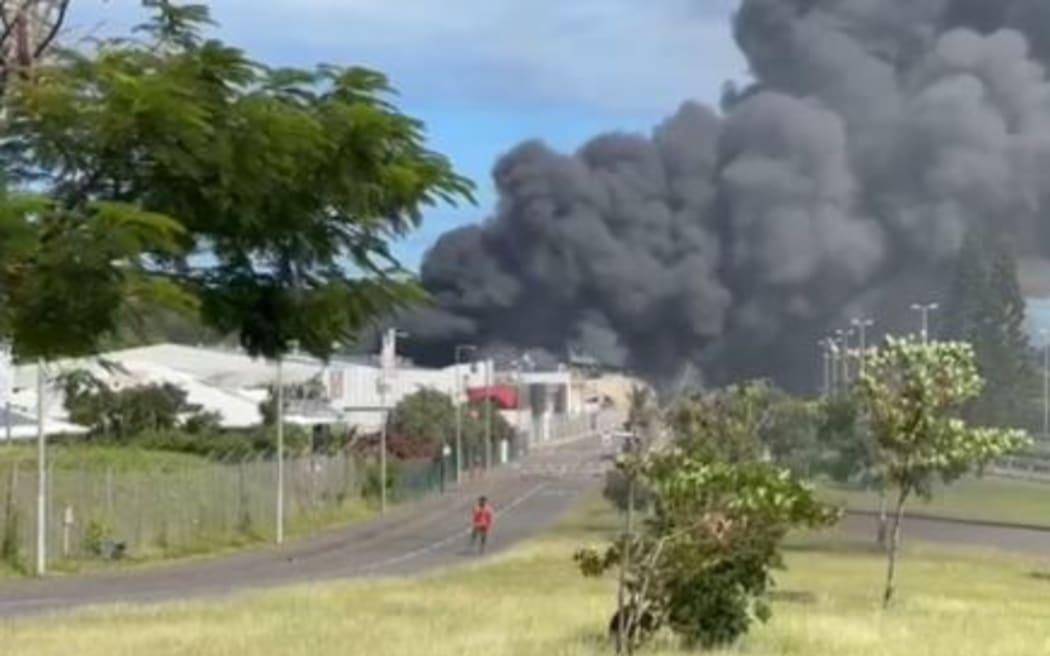
Nouméa et le grand Nouméa se réveillent après une nuit de saccages et d’affrontements. Suivez la situation en direct https://t.co/JtW8NWH7Hf pic.twitter.com/5XTbB2D3Z4
— NC La 1ère (@ncla1ere) May 13, 2024
Authorities have imposed a curfew for Nouméa and its surrounds, from 6pm tonight to 6am tomorrow.
Airports are closed due to protest action.
Dans le centre-ville de la capitale, c’est Nouméa ville-morte au matin du mardi 14 mai pic.twitter.com/kEM21XcsJi
— NC La 1ère (@ncla1ere) May 13, 2024
Public services and schools in the affected areas announced they were sending staff and students home on Monday, and that they would remain closed for the next few days.
Meanwhile, New Zealand Foreign Affairs Minister Winston Peters, who is on a five-country Pacific mission this week, has cancelled his visit to New Caledonia due to the unrest.
Peters and a delegation of other ministers were due to visit the capital Nouméa later this week.
This article is republished under a community partnership agreement with RNZ.
This post was originally published on Asia Pacific Report.
This content originally appeared on The Grayzone and was authored by The Grayzone.
This post was originally published on Radio Free.
This content originally appeared on The Grayzone and was authored by The Grayzone.
This post was originally published on Radio Free.
This content originally appeared on Radio Free Europe/Radio Liberty and was authored by Radio Free Europe/Radio Liberty.
This post was originally published on Radio Free.
This content originally appeared on Radio Free Europe/Radio Liberty and was authored by Radio Free Europe/Radio Liberty.
This post was originally published on Radio Free.
This content originally appeared on Radio Free Europe/Radio Liberty and was authored by Radio Free Europe/Radio Liberty.
This post was originally published on Radio Free.
Washington, D.C. — Among the protesters in the pro-Palestinian encampment at George Washington University cleared by the police early on Wednesday were students from nearby Gallaudet University, the only college in the United States to have all programs designed for those who are deaf and hard of hearing. Some of them are founding members of Gallaudet’s Students for Justice in Palestine chapter…
This post was originally published on Latest – Truthout.
This content originally appeared on Radio Free Europe/Radio Liberty and was authored by Radio Free Europe/Radio Liberty.
This post was originally published on Radio Free.
This content originally appeared on Radio Free Europe/Radio Liberty and was authored by Radio Free Europe/Radio Liberty.
This post was originally published on Radio Free.
The student encampment movement is expanding as faculty find new ways to intensify participation and solidarity. Teachers across the country are providing an example of how the wider community concerned about ending the assault on Gaza can do more than stand on the sidelines of today’s solidarity movement. On May 8, faculty at The New School in New York City initiated the first faculty encampment.
This post was originally published on Latest – Truthout.
Stockholm, May 10, 2024—Georgian authorities should thoroughly investigate widespread harassment and threats against journalists covering a bill that would designate media outlets as “foreign agents” and Parliament should reject the draft law, the Committee to Protect Journalists said Friday.
Since May 7, more than 30 journalists covering the bill “on transparency of foreign influence” and public protests against it have been targeted with anonymous abusive and threatening phone calls, journalists from 10 different independent news outlets told CPJ.
On May 9, Nino Zuriashvili, head of Studio Monitor, which makes investigative documentaries, and Gela Mtivlishvili, editor-in-chief of the independent website Mountain News, told CPJ that unknown individuals covered the entrances to their offices with posters and graffiti denouncing them as “foreign agents.”
Tamta Muradashvili, director of independent broadcaster Mtavari Arkhi, told CPJ that more than 10 of her colleagues had received threatening and abusive calls. She said she believed it was “very clear that the campaign is coordinated by government agencies,” given its scale, the callers’ access to government-held personal data, and the lack of response from the authorities.
“Increasing threats and intimidation against journalists in Georgia are deeply concerning and demonstrate that the ‘foreign agent’ bill not only unjustly restricts and stigmatizes journalists but also makes them more unsafe,” said Gulnoza Said, CPJ’s Europe and Central Asia program coordinator, in New York.
“With the eyes of the world on Georgia over this bill and the country’s hopes of joining the European Union, the authorities should know their reputation is on the line if they don’t conduct a swift and convincing investigation into acts of intimidation against journalists and ensure media workers’ safety.”
Hundreds of critics of the bill reportedly received threatening phone calls, offices of numerous organizations were targeted with posters, and at least six prominent opposition politicians and activists were beaten this week.
The bill would require media outlets and nonprofits receiving more than 20% of their income from abroad to register as “organizations pursuing the interests of a foreign power.” Parliament is expected to pass the bill in a third and final reading by May 17.
‘No place in Georgia for agents’
Zuriashvili told CPJ that a man called her from an international number on May 7, asked if she was from Studio Monitor, swore at her, and asked why she was critical of the foreign agent bill.
Zuriashvili posted a photo on Facebook of her office door, showing graffiti that she found on May 9, written “agents’ HQ” and printed posters showing her face, name, and Studio Monitor’s logo, with the words, “There is no place in Georgia for agents.”
On May 10, unknown individuals plastered dozens of posters on the façade of Zuriashvili’s apartment and graffitied her car with obscene images and the phrase “agent who sold themselves for money,” the news website Netgazeti reported.
Mountain News also posted images of dozens of similar posters and graffiti that were found to have been plastered on the walls of Mtivlishvili’s home and the outlet’s office on May 9.
On May 8, Natia Kuprashvili, founder of independent broadcaster TOK TV, said on Facebook that an unidentified caller recited her address and said they were waiting for her at her apartment.
Zuriashvili, Mtivlishvili and several other journalists told CPJ that they believed they were targeted for their vocal opposition to the foreign agent bill and for their outlets’ critical coverage of the bill and Georgian authorities.
Parliament Speaker Shalva Papuashvili said on May 8 that authorities would create a public online register of individuals who were “involved in violence, other illegal actions, threats and blackmail, or publicly approve of such actions.” Muradashvili said such a register would likely be used against critics of the bill and that the authorities’ announcement of the register amid the intimidation campaign demonstrated their repressive direction.
CPJ also spoke to journalists at the independent broadcasters TV Pirveli and TV Formula and at the news websites JAMnews, OC Media, Netgazeti, Batumelebi, and Georgian News who all said that their staff had been targeted with threatening calls.
CPJ’s emails requesting comment from the ruling Georgian Dream party, and email and Facebook message to the Special Investigation Service, which investigates allegations of crimes against journalists, did not immediately receive any replies.
This content originally appeared on Committee to Protect Journalists and was authored by Committee to Protect Journalists.
This post was originally published on Radio Free.
Independent videographer Sean Beckner-Carmitchel was repeatedly harassed and his phone knocked to the ground while reporting on a pro-Israeli counterprotest to the pro-Palestinian encampment at the University of California, Los Angeles, on April 29, 2024.
UCLA’s student newspaper, the Daily Bruin, reported that protesters had erected the encampment on campus April 25 to call for a cease-fire in the Israel-Gaza war and demand that the UC system divest from companies that invest in weapons manufacturers for the Israeli military.
A large, pro-Israeli counterprotest was organized next to the encampment, with barricades erected to separate the groups, Reuters reported. Beckner-Carmitchel told the U.S. Press Freedom Tracker that he was headbutted and shoved by a man while reporting on the clash between the two groups on April 28.
Throughout his coverage the following evening, Beckner-Carmitchel said, multiple individuals targeted him for harassment and assault.
“At one point, one of the pro-Israel protesters stood in front of me and blared an air horn directly in my ear for like five minutes straight,” he said. “They also threw what I’m guessing was a wadded up sign at my head at one point.”
In footage Beckner-Carmitchel posted on Instagram, an air horn can be heard resounding as he filmed counterprotesters attempting to break into the encampment. He added that at various points individuals called him slurs, knocked the phone from his hands and came up from behind him and blew a whistle in his ear.
This content originally appeared on U.S. Press Freedom Tracker: Incident Database and was authored by U.S. Press Freedom Tracker: Incident Database.
This post was originally published on Radio Free.
As two U.S. philosophers, we feel compelled to bring our experience and perspective to bear on the current crisis in academia and the pressing need for solidarity with those suffering from Israeli brutality in Gaza and campus protesters who seek justice and freedom for Palestinians. In the piece that follows, we each sequentially offer reflections on the nationwide campus protests against the…
This post was originally published on Latest – Truthout.
Florida Republican Sen. Marco Rubio wrote a letter to the Biden administration this week demanding that international students who have taken part in pro-Palestine protests in the U.S. be deported immediately. The action Rubio is calling for would deprive these students, who are in the country on education visas, of their rights to free speech, assembly, and due process — rights that are afforded…
This post was originally published on Latest – Truthout.
This content originally appeared on Democracy Now! and was authored by Democracy Now!.
This post was originally published on Radio Free.
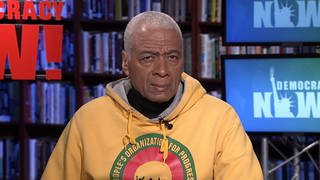
Larry Hamm is chair of the People’s Organization for Progress and a Princeton alumnus who took part in protests at the school in the 1970s to call for divestment from apartheid South Africa. He visited the Princeton student encampment earlier this week and says he is “really proud of the students” for their protest against the war in Gaza. Hamm, who is running in the Democratic primary for the U.S. Senate from New Jersey, is promoting a vote for “uncommitted” in the state’s presidential primary vote. “I’m totally opposed to the Biden administration’s approach to this genocidal war in Gaza. There must be an immediate and permanent ceasefire, and the United States should cease any military aid to Israel.”
This content originally appeared on Democracy Now! and was authored by Democracy Now!.
This post was originally published on Radio Free.
This content originally appeared on Radio Free Europe/Radio Liberty and was authored by Radio Free Europe/Radio Liberty.
This post was originally published on Radio Free.
The long-simmering crisis over Israel’s genocide of Palestinians has reached a breaking point. Campus protests in solidarity with Gaza have erupted across North America, spanning at least 45 U.S. states, Canada and Mexico. Similar demonstrations have surged across Europe, including in Austria, Belgium, Denmark, Finland, Germany, Ireland, Italy, the Netherlands, Spain, Switzerland and the United…
This post was originally published on Latest – Truthout.
“When people come from outside your community or your campus, it makes you feel like you’re connected to a bigger whole,” says Solidarity coauthor Astra Taylor. “It makes you feel like what’s happening there matters. It creates a sense of a larger coalition. And that’s powerful, which is exactly why the people in power don’t like it.” In this episode of “Movement Memos,” host Kelly Hayes talks…
This post was originally published on Latest – Truthout.
This content originally appeared on Radio Free Europe/Radio Liberty and was authored by Radio Free Europe/Radio Liberty.
This post was originally published on Radio Free.
Workers for The New School in New York City have erected the first-ever faculty solidarity encampment amid the wave of pro-Palestine protest encampments that have been led and sustained by students at over 100 colleges and universities across the U.S. On Wednesday afternoon, a group of about 20 faculty put up roughly six tents in the lobby of the New School University Center, a major building for…
This post was originally published on Latest – Truthout.
Columbia Journalism School student Iryna Humenyuk was among a group of student reporters that New York City police forced into a campus building and prevented from leaving for several hours on April 30, 2024, as officers retook another building occupied by pro-Palestinian protesters.
Due to restrictions on outside press access to the campus, Humenyuk and other student reporters were the only media allowed there that day, when New York Police Department officers cleared Hamilton Hall, a building being occupied by protesters.
Humenyuk and other student reporters were told by police to move away from Hamilton toward John Jay Hall, a nearby residence hall, at around 9 p.m., according to an account published in Curbed by Samaa Khullar, a reporting fellow at the journalism school.
“They used their batons to push us inside,” Humenyuk was quoted as saying in the article, whose details she confirmed in an email to the U.S. Press Freedom Tracker.
Humenyuk was crowded with about 50 others into a small entryway behind the doors of John Jay, Khullar wrote. NYPD officers locked the doors after the vestibule filled and then stood outside, guarding the entrance and blocking the view of Hamilton. Because the student journalists did not live in the building, they remained confined in the vestibule area.
“People were yelling at the police and they just wouldn’t acknowledge anyone or answer any questions,” Humenyuk was quoted as saying.
At midnight, Humenyuk was told that those inside could leave in groups of two, with escorts, Khullar wrote.
The NYPD did not respond to a request for comment.
This content originally appeared on U.S. Press Freedom Tracker: Incident Database and was authored by U.S. Press Freedom Tracker: Incident Database.
This post was originally published on Radio Free.

As students around the country set up Gaza solidarity encampments on their campuses, many universities have called in police who have arrested students and dismantled the sites. But students at a number of colleges have managed to negotiate agreements where administrators have acceded to some of their demands, including considering divestment from Israel. We speak with four students who have been involved in pro-Palestine protests on campuses at Middlebury College in Vermont, Evergreen College in Washington state, Brown University in Rhode Island and Rutgers in New Jersey.
“Being an American complicit in this and being a student at an institution complicit in this genocide directly, I couldn’t imagine standing by and not acting,” says Duncan Kreps, who is graduating from Middlebury.
Aseel, a Palestinian student at Rutgers who is only using her first name out of safety concerns, tells Democracy Now! that nearly 100 of her relatives have been killed in Israel’s assault on Gaza. “The Gaza that I once knew is essentially gone, but I am more than confident, along with my family, that we will return and that we will rebuild it,” she says.
This content originally appeared on Democracy Now! and was authored by Democracy Now!.
This post was originally published on Radio Free.
This content originally appeared on Radio Free Europe/Radio Liberty and was authored by Radio Free Europe/Radio Liberty.
This post was originally published on Radio Free.